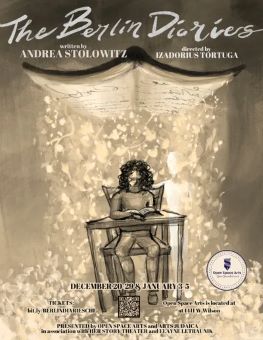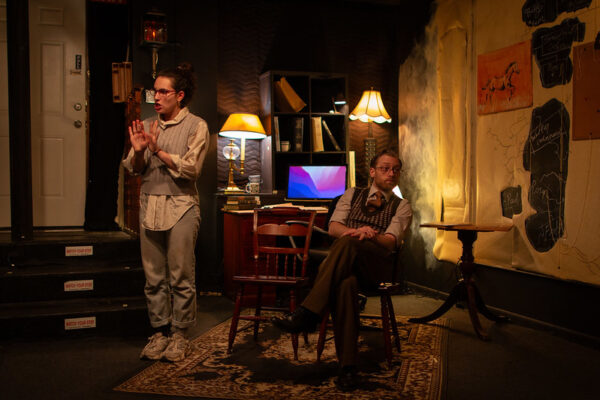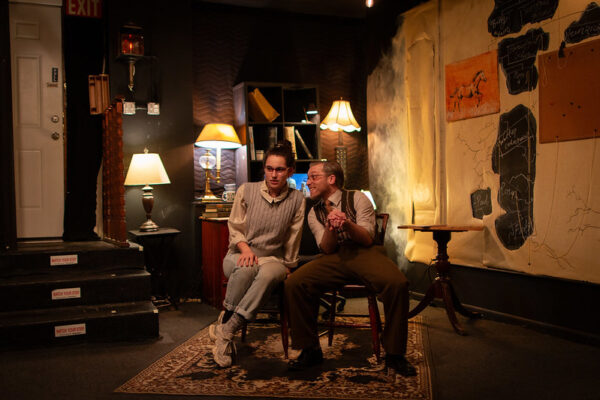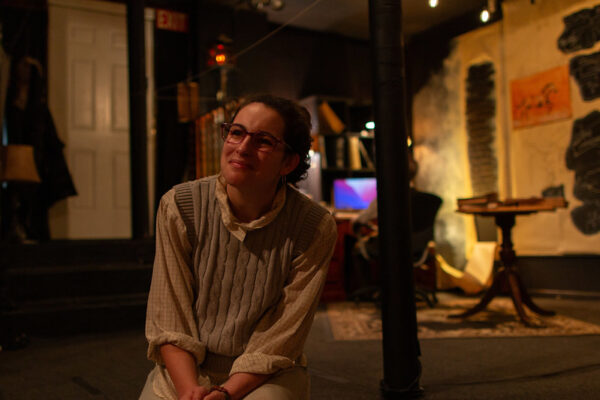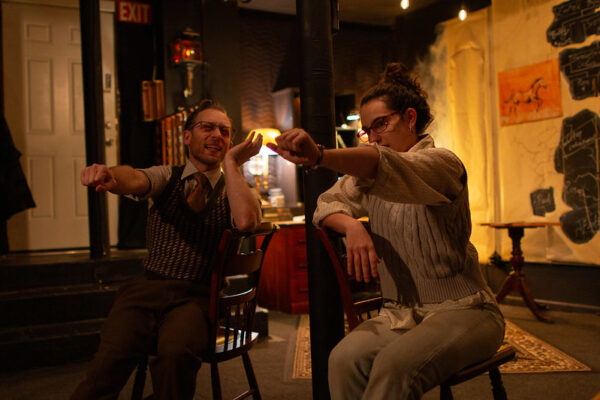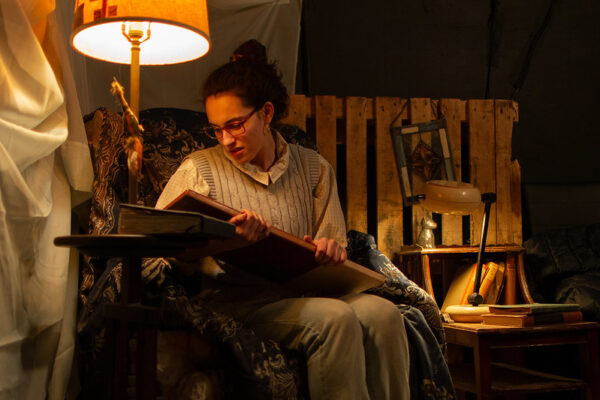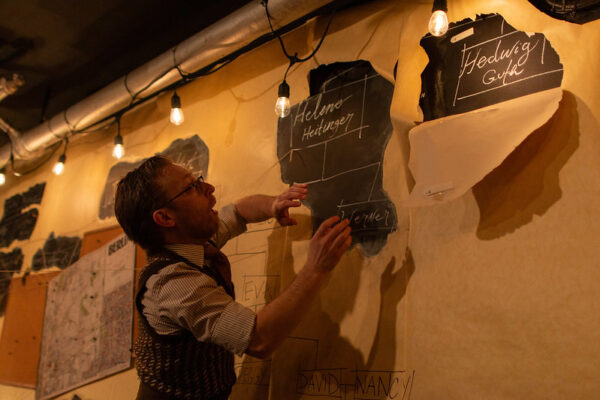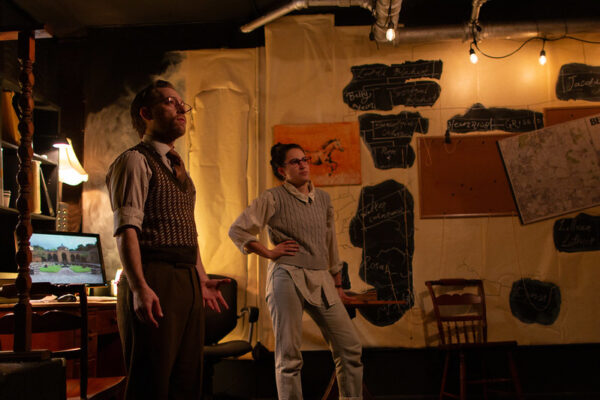EXCAVATING THE PAST TO SOLVE
PUZZLES ABOUT THE PRESENT
Family is so integral to our identity that it’s difficult not to be enthralled by them. A complicated source of delight, distress, curiosity and mystery, no matter how much they change and evolve, grow or shrink, they remain a source of limitless fascination. The spirit of that fascination drives Andrea Stolowitz’s autobiographical play, The Berlin Diaries, now playing at Open Space Arts in conjunction with Arts Judaica and Her Story Theater. Produced by Elayne Letraunik, Stolowitz’s story follows a woman on a journey of discovery after obtaining her great grandfather’s diary. Its contents and the emotions they kindle lead her to use the diary as the source material for a play.
Like many of us, the central character Andrea’s understanding of her family is not as complete as she believes it is. German Jews who escaped the country shortly before the second world war began, she and the rest of her family considered themselves fortunate because they didn’t believe they were personally touched by the genocide that stains WWII. Obtaining her great grandfather’s diary offers the chance to confirm those suspicions. It also provided an opportunity to gain greater insight into her background and heritage. As a playwright, her inquisitiveness compels her to seek a grant — enabling her to travel to Germany, research her family’s past and bring it to light through a play.
How to present that arc of discovery becomes the challenge of The Berlin Diaries and it is one that could have been better met. Placed in both the late 1930s and the second decade of the 2000s, and set in both the United States and Germany, the play’s scope is formidable. Add to that, only two actors are tasked with playing a large spectrum of roles; many that include the use of German accents. In such an environment, building and maintaining clarity is essential if a firm plot foundation is to be established. It isn’t here.
Eliana Decker-Glick’s role as the playwright, Andrea, is never unclear. However, Artem Kreimer’s part as Max is much more vague. There to bolster context and facilitate broad ranging dialog, Kreimer, given the need in any specific portion in the play, can be Andrea’s husband, uncle, a German archivist or the playwright’s great grandfather incarnate. At some points he’s even Andrea’s alter ego when she’s questioning herself. Despite the undisputed proficiency of the actors, understanding the play’s direction and progress is hampered by the rapidity of role transitions and the furious clip of the one act play itself. This was especially true at the most important part of The Berlin Diaries, the beginning, creating a haze that obscured its purpose.
Despite these incumbrances, there were also rewards. Not least among them, the performances. Both Decker-Glick and Kreimer proved extremely adroit and convincing shape-shifters as they slid smoothly from one character to another. When structure began to coalesce well into the play, you could better appreciate the artistry and skill each of them contributed. Making his directing debut, Izadorius Tortuga insured The Berlin Diaries maintained a vigorous sense of movement and energy. Making full use of every element of the stage and occasionally having the actors directly engage the audience, he injected the project with laudable creative vitality. Dripping with shrewd ingenuity, similar tributes can be extended to Viscaya Wilson’s astute set design.
Following Andrea in her search for answers about her roots, we learn there may have been another more immediate question she was trying to answer: why was her family not close? When that door opens, we enter the realm of the universal and confront one of the most common mysteries of humankind — how to build and sustain vital connections, especially within families. It’s a question that knows no barriers in time, place or peoples. Expressing itself in the context of Jewish culture and heritage, that conundrum lies at the core of The Berlin Diaries. Because of their complexity, answering such enigmas is never straightforward. But attempting to do so can still relinquish their own treasures. Andrea finds many during her quest. One unsurprisingly sets the record straight on the true toll the Holocaust levied on her family. What that effort cannot do though is just as interesting and enlightening. Helping us to understand and accept that fact counts as one of The Berlin Diaries most lasting contributions to theater.
photos of Eliana Deckner-Glick & Artem Kreimer by Victor Yang
The Berlin Diaries
Open Space Arts/Arts Judaica, in association with Her Story Theater
Open Space Arts, 1411 W Wilson
Fri and Sat at 7:30; Sun at 2
for tickets ($25), visit Open Space Arts
for more shows, visit Theatre in Chicago
